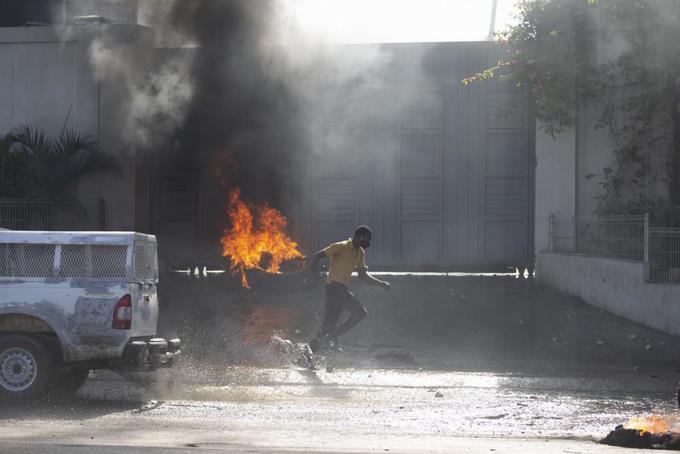The Dominican government says it has identified the leaders of the Haitian gangs

Santo Domingo, d.
Last night, the Dominican Republic claimed to have identified the key leaders of gangs operating in Haiti, In a statement, they denied their operation in the country.
The Dominican government issued a statement indicating that “Haiti does not have the technology or reliable records to obtain accurate information on the identity of members of the various criminal gangs.”
“Our country, on the other hand, has a biometric registration system and other technologies that allow us to identify the main leaders of the gangs operating in Haiti,” says the statement signed by presidential spokesperson Homero Figueroa.
The Dominican announcement comes after Haitian police reported that citizens Dominicans belong to gangs that trouble Haiti.
This is the full statement of the Presidency of the Republic:
The case of the imprisoned citizen in Haiti
The Haitian National Police issued a statement on Wednesday, June 22nd, describing confessions obtained in an interrogation of a person named “Moulay Ortiz Messis”. With the aim of informing the population, we want to make the following clarifications.
1 – National intelligence agencies have identified in the database of the Central Electoral Council (JCE) that citizen Luis Alejandro Ortiz Mises (aka Molly), born on 12/29/88 in the municipality of Guaira, appears to be registered as a Dominican. ., Santo Domingo Province.
2. Responsible for the investigation, in addition to comparing Fingerprints and photos, I spoke with family members who confirmed identity They expressed no contact with their relative for ten years.
3 – Luis Alejandro Ortiz Mises has been a fugitive from Dominican justice since 2013 for his participation in the kidnapping of a merchant in the municipality of Guaira, Santo Domingo province.
4. Reports from national intelligence agencies They did not specify the other Dominicans As a member of any of the gangs Active in the territory of Haiti.
5. Haiti does not have the technology or reliable records to obtain accurate information on the identity of members of various criminal gangs.
6. Our country, on the other hand, has a biometric registration system and other technologies that allow us to identify the main leaders of the gangs operating in Haiti.
The Dominican authorities ensure that no Haitian gangs operate in the national territory. The current case is an isolated incident involving a fugitive who has lived in Haiti for nearly ten years.
Presidential press release
Dominican authorities ensure that Haitian gangs do not operate in the national territory
Santo Domingo. – In order to inform the population of the spokesperson and manager Strategy and Government Communication, Homero Figueroa, He issued a statement in which, on Wednesday, June 22, the Haitian National Police described the confessions obtained in an interrogation conducted against a person named “Moulay Ortiz Messis”.
The document specifies that, according to the national intelligence agencies, Luis Alejandro Ortiz Mises (Alias Molay), registered as a Dominican in the database of the Central Electoral Council (JCE), born on 12/29/88, in the municipality of Guerra, Santo Domingo province. His identity was confirmed by comparing the fingerprints of his and his relatives, whom they claimed they had not contacted in ten years.
Ortiz Messis has been declared a fugitive from Dominican justice since 2013, For his participation in the kidnapping of a merchant in the municipality of Guerra, in the province of Santo Domingo.
Reports from national intelligence agencies do not identify other Dominicans as members of any of the gangs active on Haitian territory.
Likewise, the report notes that Haiti does not have the technology or reliable records to obtain it. Honest information about the identity of the various criminal gangs And that the Dominican Republic, on the other hand, has Biometric registration system And other techniques that allow us to identify the main leaders of the gangs operating in Haiti.
The Dominican authorities ensure that no Haitian gangs operate in the national territory and that the current case is an isolated incident involving a fugitive who has been living in Haiti for about ten years.




:quality(85)/cloudfront-us-east-1.images.arcpublishing.com/infobae/P3M34YHXTVFZTCYTQQSSPRA4ZM)